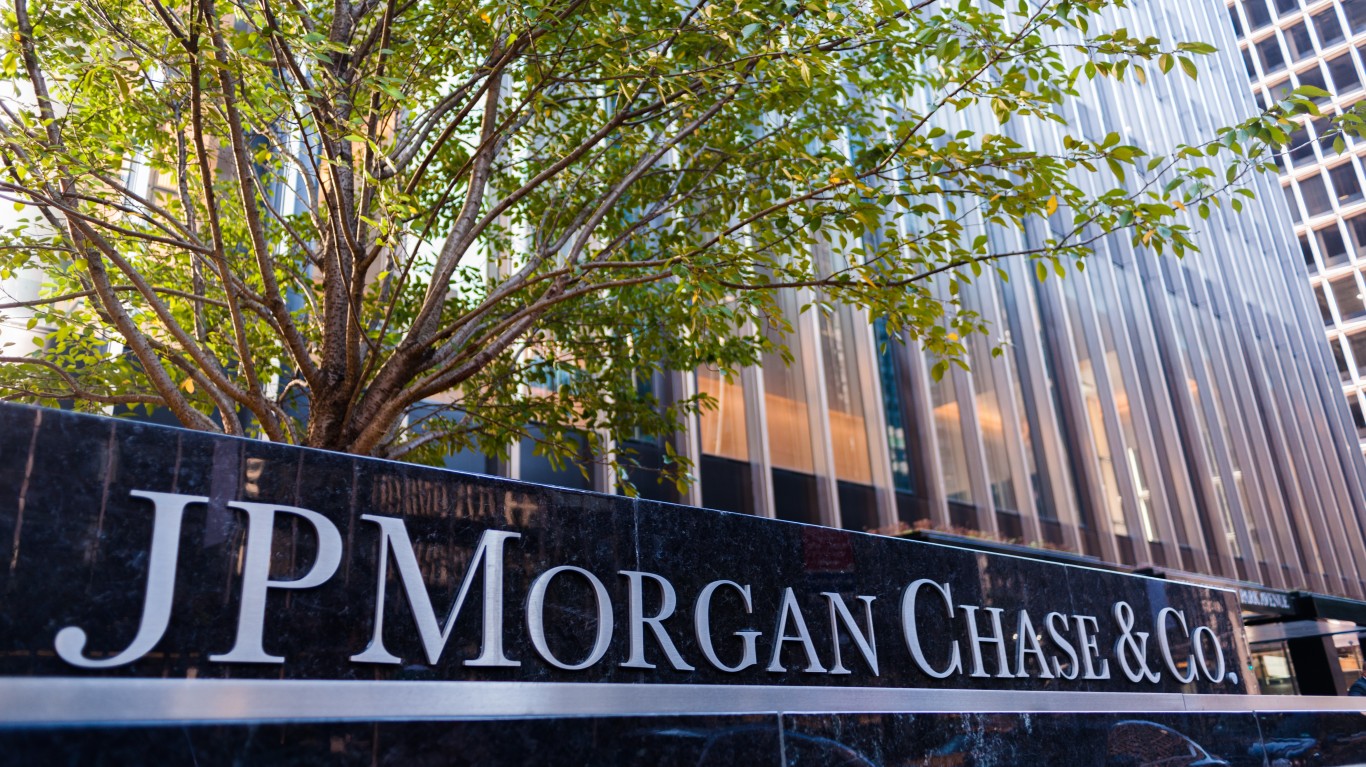Investing
Will JPMorgan Chase (JPM) See Its Stock Double Under a Trump Presidency?

Published:

Financial stocks rocketed higher following Donald Trump winning the U.S. presidential election. The S&P 500 Financials Sector index was up 6% after Donald Trump secured his bid for presidency.
JPMorgan Chase (NYSE:JPM) was one of the best stocks in the space as the promise of a better regulatory environment for the industry drove prices higher this week.
The spike in the banking giant’s stock holds the promises of future share price gains, but can JPM stock double in value during the Trump administration?
JPMorgan Chase is a banking behemoth, the biggest bank in the country by assets, or some $4.2 trillion. It is also the No. 1 bank for retail deposits, or $2.4 trillion, a position it has held for four consecutive years.
The bank reported net income of $12.9 billion in the third quarter, or $4.37 per share, easily trouncing Wall Street estimates of $4.01 per share. Adjusted revenue was up 6% from the year-ago period as net interest income (NII) rose 3% to $23.5 billion. It also saw strong performances from its lending activity, in commercial and investment banking, and in asset and wealth management.
The performance underscores JPMorgan’s breadth and depth of bank resources, which is why it remains the premier U.S. bank.
Trump ran a campaign promising lower corporate taxes and deregulation of the banking industry. He vowed to cut the tax rate from its current level of 21% to as low as 15% for companies that produce goods in the U.S. He also promised to eliminate 10 regulations for every new one created.
There is a lot of room for the once-and-future president to make changes, particularly in areas like the Consumer Financial Protection Bureau (CFPB), which has initiated a number of rule-making proposals that the banking industry opposes; adoption of the so-called Basel rules, which increase the amount of capital banks are required to hold; and Dodd-Frank Act Section 1033 rules on data-sharing between banks.
The markets expect Trump to ease much of these proposed regulations and others, as well as possibly replace the head of the CFPB. The term of current director Rohit Chopra runs until 2026, but Trump could replace him as he has been more aggressive in cracking down on the industry.
As the leading U.S. bank, JPMorgan Chase stands to benefit as much or more than other financial institutions. JPM stock is up 66% over the past year and should climb as the regulatory and tax environment improves.
With Republican control of both houses of congress, all the pieces are in place for the banking giant’s stock to pad its gains and double or more over the next four years.
The thought of burdening your family with a financial disaster is most Americans’ nightmare. However, recent studies show that over 100 million Americans still don’t have proper life insurance in the event they pass away.
Life insurance can bring peace of mind – ensuring your loved ones are safeguarded against unforeseen expenses and debts. With premiums often lower than expected and a variety of plans tailored to different life stages and health conditions, securing a policy is more accessible than ever.
A quick, no-obligation quote can provide valuable insight into what’s available and what might best suit your family’s needs. Life insurance is a simple step you can take today to help secure peace of mind for your loved ones tomorrow.
Click here to learn how to get a quote in just a few minutes.
Thank you for reading! Have some feedback for us?
Contact the 24/7 Wall St. editorial team.